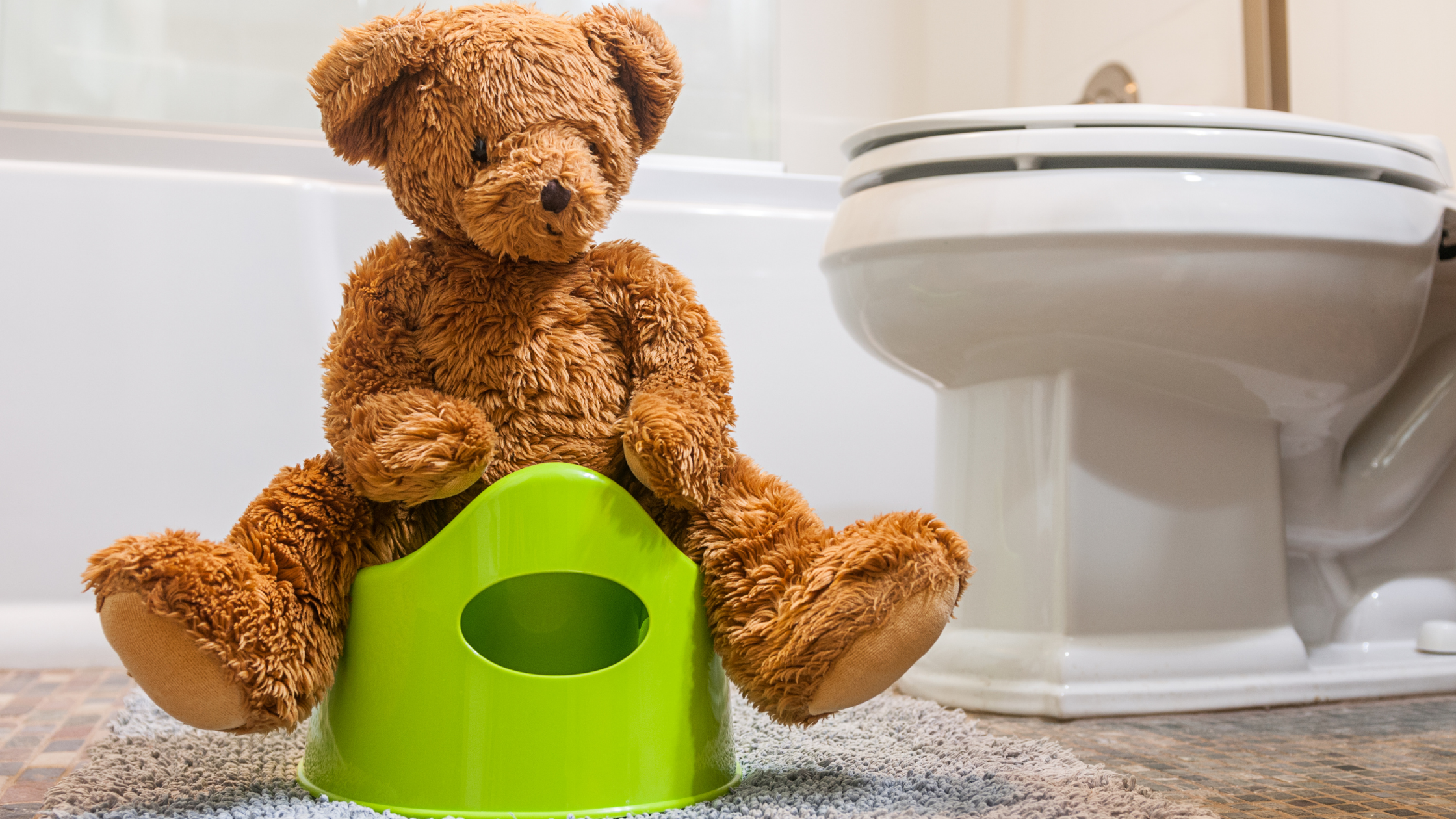Ultimate Guide to Potty Training
May 31, 2022 |Two words that can strike fear and panic in any parent, both new and seasoned...
POTTY. TRAINING.
*cue shudder*
For parents who have done this before, those words might trigger a highlight reel that revisits all of the accidents, meltdowns, tears, and unsolicited advice. And that's not even including what my children did...
For new parents, it means their baby is growing up, and it can be overwhelming to figure out where to start or what advice to consider.
I'm here to give you some tried and true advice that not only worked on my own children, but the hundreds of children I've potty trained in child care. Together, we can make this time a little less messy for you and your family.

Timing
Timing is one of the most important things to take into consideration prior to starting! You always start by making sure your child is ready. There isn't a specific age that potty training should happen, though the average age is usually 2.5-3.5 years old.
Unsure of how to tell if your child is ready? Here are some signs to look for:
- They have an interest in the bathroom or toilet
- They are able to stay dry for at least 2-3 hours
- They have the vocabulary or gestures to communicate their needs
- They are able to remove (or attempt to remove) their pants
Timing is also important for the adult! When making the decision to start potty training, sit down with others that may be assisting and look at when works best. My suggestion would be at the beginning of a period when you'll be home for the entire time and can keep consistent with the method you choose. For example, making the decision to start potty training a few days before going on a camping trip where your child will have to use a nasty outhouse or on the wedding day of a friend where your child is flower girl will not be a pleasant experience for anyone involved.
Accidents Happen
Be ready for lots of messy accidents! Plan ahead to have extra supplies in your diaper bag, car, and at child care. Planning also involves how you are going to handle the accidents. Remember, your child is learning and getting upset with them for having an accident will only scare them, which will result in their attempt to hide it moving forward. Calmly say something along the lines of "Accidents happen. Let's go clean up!" and allow them to assist in the clean up process.
Get Creative
If you Google "potty training ideas" you'll find hundreds of different tips from watching for physical signs to letting your child run around naked, and everything in between. But all children are different. What worked for one child will almost never work for the next.
For my children, it was timing them. We would set a timer, starting with every 30 minutes and then slowly moving further out as time passed. When the timer went off, I tried to get my child to use the toilet. Even if they didn't go, if they were willing to sit and try, they got a high five and a sticker.
But once we got in the bathroom, the creativity was necessary. They would usually sit down for 2 seconds, say "I tried!" and then jump up. I had a toy bubble blaster that my son absolutely loved and rarely got to use, so I started offering him the chance to use it, but only if he was sitting on the toilet. My artsy daughter wanted to color, so we turned her around backwards and she colored on the toilet lid with dry erase markers. Soon, they always wanted to be in there and were so distracted that eventually, they'd relax and use the bathroom and then POOF! it became a habit. Slowly, the rewards and distractions weren't used as often and then they removed them entirely on their own. Your job is finding what positive reinforcement and distraction works for your child.
Don't give up!
Even with all of the tears, accidents, stress, and messes... keep trying. You may need to try several methods before you find one that sticks.
You may also find yourself where you start the process before the child is mature enough to handle potty training. In that case, don't force it! You can back off, but still offer them the chance to try and spend time in the bathroom daily. Children are smart and tricky though. Many, many times I had kids in child care that were accident free all day and then would go home and tell their parents that they wanted a diaper on and would get their way. If they are able to ask for the diaper, they can be potty trained.
There is no specific length of time for this process. Just keep at it, have patience, and remember to breathe! You can do this!
- Ultimate Guide to Potty Training - May 31, 2022

